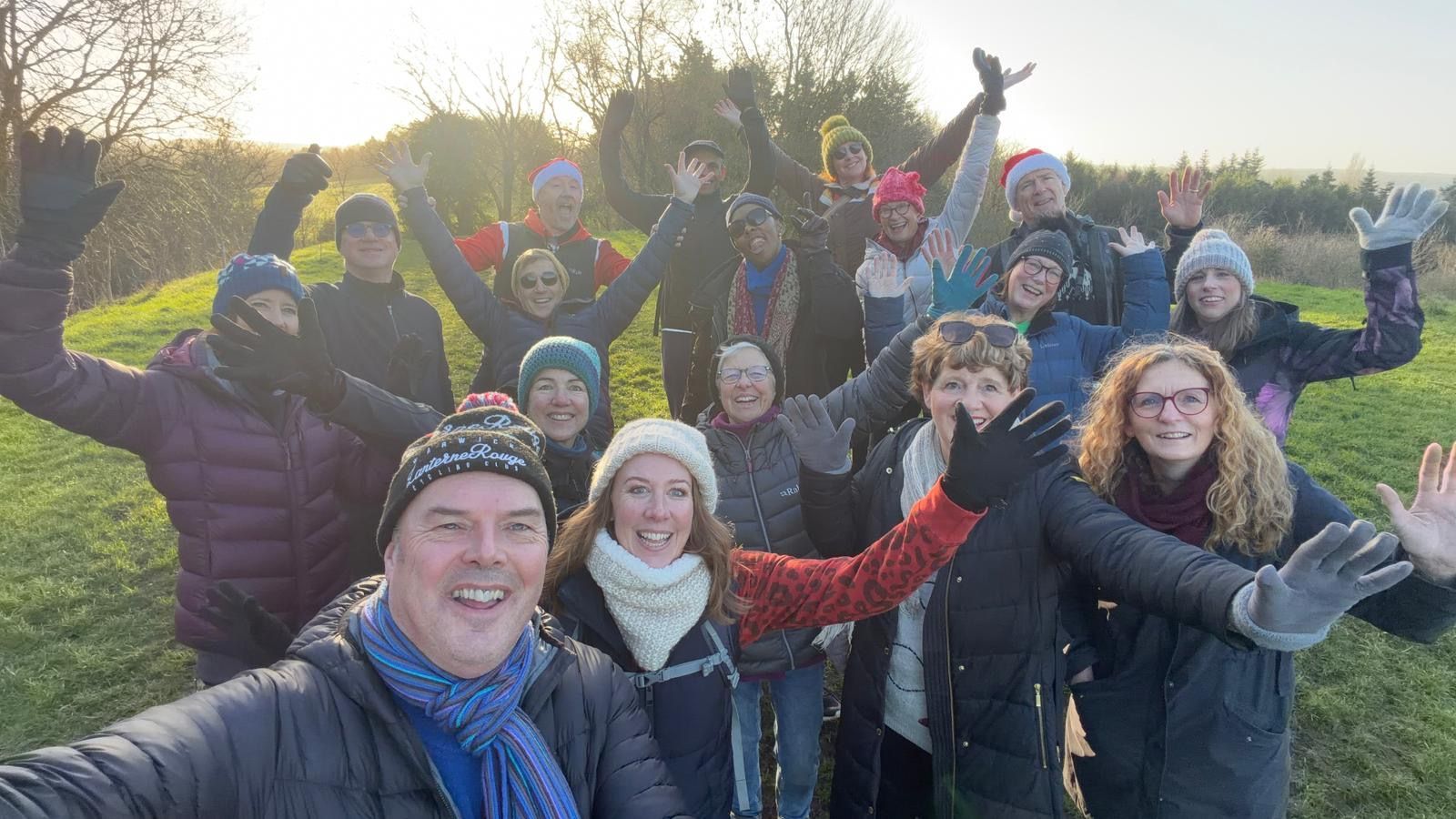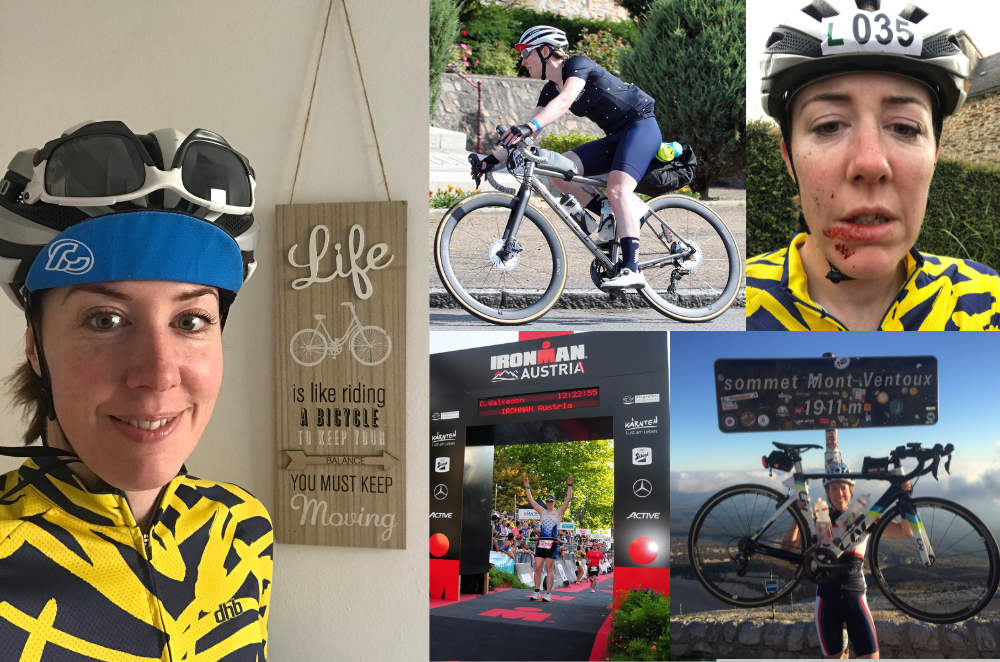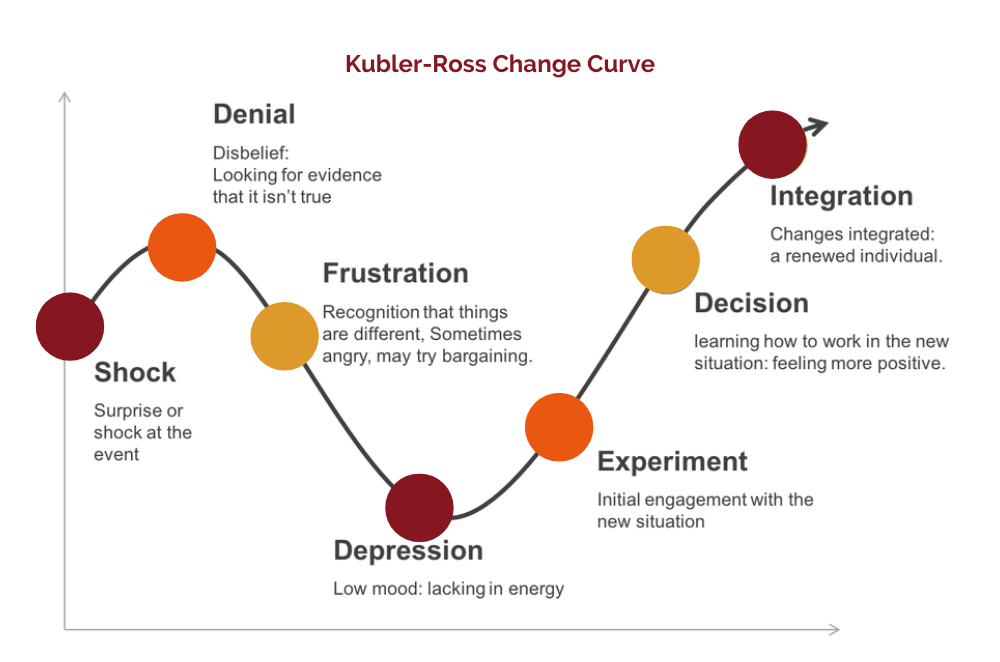Walking...It's The Way Forward
Clare Walkeden • January 24, 2020
Step outside....walk with me, talk to me, let’s move forward together
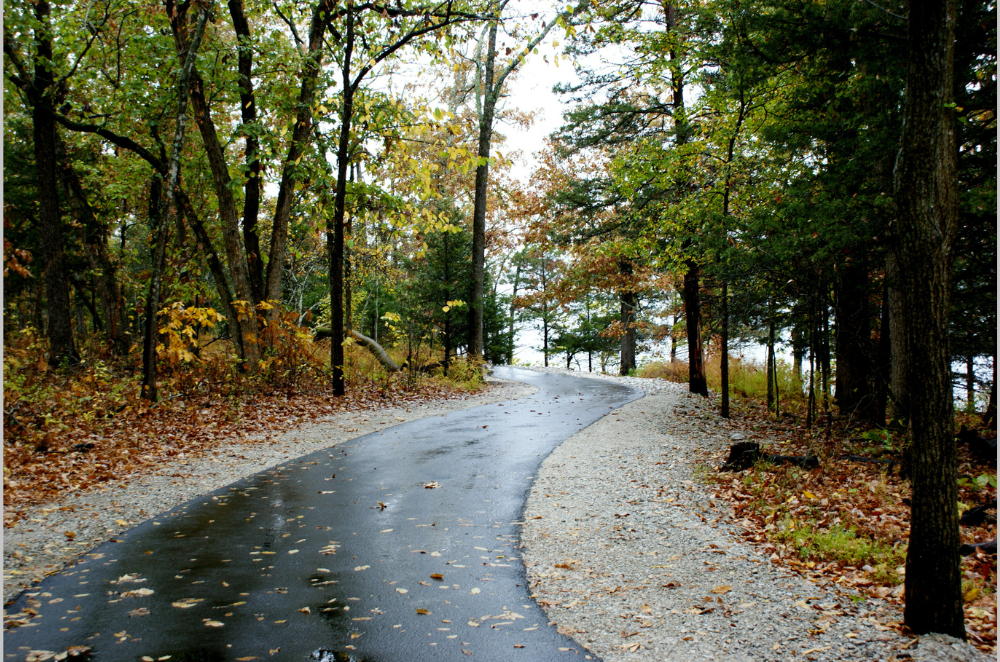
“All truly great thoughts are conceived by walking”
Friedrich Nietzsche (1889)
Friedrich Nietzsche (1889)
Steve Jobs, the late co-founder of Apple, was known for his walking meetings and Facebook’s Mark Zuckerberg has also been seen holding his meetings on foot; you’ve probably even found yourself at times pacing up and down to drum up ideas and there is good reason for this.
Walking changes the brain waves from a beta state of wakefulness, quick-thinking and multi-tasking, to a slower alpha state, more akin to deep relaxation, which allows for clearer thinking, problem solving and creativity.
Why is this important? Well, when we are thinking about both your personal life and your business, if you do what you’ve always done, you’ll get what you’ve always got.
While research indicates that being outdoors has many cognitive benefits, walking has a very specific benefit - the improvement of creativity.
A study carried out by Stanford University found that a few minutes walking can increase our creativity by up to 60% and even when we sit down after walking, we get a residual creativity boost.
Walking opens up the free flow of ideas, it’s such a simple but also robust solution in increasing creativity and increasing physical activity and wellbeing.
If you want even more evidence of why walking works, here’s the science bit!
A little daily gentle exercise significantly reduces the stress hormone, cortisol, in our bodies. Cortisol, the primary stress hormone, increases sugars (glucose) in the bloodstream, it enhances your brain's use of glucose and increases the availability of substances that repair tissues.
Cortisol limits functions that are nonessential or detrimental in a fight-or-flight situation, it alters immune system responses and suppresses the digestive system, the reproductive system and growth processes. Think of it as your (complex) natural alarm system that also communicates with the brain regions that control mood, motivation and fear.
The body's stress-response system is usually self-limiting, so once a perceived threat has passed, hormone levels should return to normal. As adrenaline and cortisol levels drop, your heart rate and blood pressure return to normalised levels, and your bodies systems resume their regular activities. But when stressors are always present and you constantly feel under attack, that fight-or-flight reaction stays turned on.
The long-term activation of the stress-response system and the overexposure to cortisol and other stress hormones that follow can disrupt almost all your body's processes. This puts you at increased risk of many health problems, including:
- Anxiety
- Depression
- Digestive problems- Headaches
- Heart disease
- Sleep problems
- Weight gain
- Memory and concentration impairment
This highlights why it’s so important to learn and build in healthy ways to cope with your life stressors and a little bit of walking goes a long way to helping that process.
"Walking is the best medicine"
Hypocrates
Hypocrates
Here’s that buzz word… wellbeing
Now let’s get one thing straight, wellbeing doesn’t require you to reserve another slice of your, possibly already overloaded life; wellbeing is a way of life.
The Oxford dictionary describes wellbeing as “the state of comfortable, healthy or happy”.
Walking is easy for our minds. When we set the bar for exercise we need small steps towards the edge of the comfort zone - if we set the bar too high, then it can be tricky to keep motivated or even just start (don’t get me started on the New Year Resolutions!). A normal paced walk and talk with me will usually cover between 2-3 miles, that’s around 4000-5000 steps so there’s a good bit of exercise carried out for your day!
Evidence suggests that physical activity in natural environments is more beneficial to health than that undertaken in other environments because, quite simply, people enjoy it. There is also a body of evidence that shows the effect of a natural environment in helping to improve attentional fatigue, which is becoming more prevalent in a world that is suffering from so much content that we are beginning to be weighed down by what can be described as ‘infobesity’
But I don’t have time…
I know, it’s hard to carve out a piece of time from the day but trust me, if you make time you will feel better about a multitude of things.
We can start early, when your mind is fresh, first thing before the demands of work? Or we can do an extended coffee break or lunch time? It can just be you, or if it’s business we can include other colleagues. I’m flexible, I’m happy to walk with you at the weekend for some time to reflect on the week whilst we make the most of looking at what nature has to offer? There’s a way to make it work for you.
"Look deep into nature, and then you will understand everything better."
Albert Einstein
Find Out more about Auburn Coaching HERE
The Positive Effect of Walking on Creative Thinking, Marily Oppezzo and Daniel L. Schwartz, (Stanford University).
Exposure to restorative environments helps restore attentional capacity, Rita Berto (Dipartimento Di Psicologia Générale, Italy)
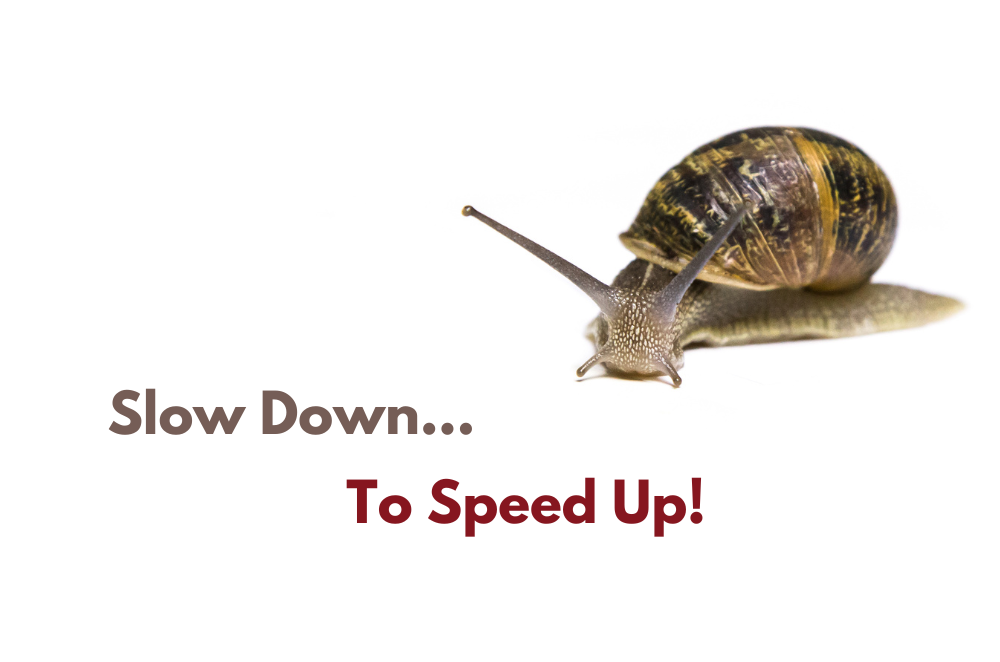
Spring is traditionally the time of renewal and regeneration as green shoots appear, blossoms flourish, and animals emerge from their slumber. After what feels like the longest side of Winter, it’s the chance we’ve all been waiting for to move towards what we may have been thinking on and planning during the darker, colder and often quieter time of the year in business. I notice as we come into Spring, a time when the body is naturally waking up, that business owners and leaders in particular are often now feeling more tired, rather than energised, due to the increasing daily demands of life. For many it feels like a treadmill, that now longer has lower speeds and you're nearly always running. Often I hear people say ‘everything is moving so fast’ or ‘we are all just running at full capacity' and even ‘I just need to stand still for a minute and breathe’. Sound familiar? How do we begin to think differently, to recognise when we need to pause and how we use that space? Chronos, the linear measurement of time, which we literally set our watch by, is held in importance to us in the modern western world; we allocate specific amounts of time to tasks, some professionals specifically charge by it, set deadlines and Zoom calls against it, in search of what we are looking to achieve. However, when we do this, we create barriers and we we call 'arrival falicy'. These aspects can prevent us from getting where we really want to be and potentially also simply enjoying the moment when we do get there. Have you ever heard yourself say ‘I just need to get to the weekend’ or 'I just need to get this project finished’ or perhaps ' I just need to get through this meeting’ only to simply bounce straight into the next task, without pausing for breath or recognition of what you might have achieved? The free and endless feeling time, so many of us are desperately in need of experiencing in the moment, is known as Kairos; a time that we simply don’t access enough. Kairos comes from an ancient Greek term meaning: “a fleeting opportunity that needs to be grasped before it passes”. Most notable Kairos is a time that carries a quality with it. How often do you feel you are getting through tasks and to-do lists ...but in reality letting those opportunities that really feel most relevant slip away? Children, yet to be conditioned to Chronos, are the masters of Kairos. They don’t understand why they have to hurry up and get ready for school, they are fully engaged and are living in the moment (or muddy puddle) they are in! How do we begin to recreate that “child state” and a feeling of time that is a bit more endless, with the quality to recognise the real opportunities? We can use the new beginnings of Spring and the world opening up to plan, explore, learn and begin to take actions towards developing more Kairos in our lives. The benefits of walking, not just for health, have been recognised by many in research but also those who rediscovered it during the pandemic. Walking cultivates mindfulness and the benefits of being in nature have never been more evident, with 45% of people during the pandemic recognising that being in green spaces became vital for their mental health. Pausing to take in the views and details of nature, gives your mind a break from the constant scenarios it’s trying to resolve (often against a deadline), enabling thoughts to become clearer, more logical, decisive, evidenced and even more creative. Adding a simple breathing exercise can help to manage your stress levels further, lowering heart rate and turning the threat response down, to manage excess levels of cortisol and adrenaline in the body. “The psychological effect of being in the dark before dawn and then hearing the chorus swell as the sun comes up is just incomparable.” McGeeney 2016 Using some gentle reflection whilst you are feeling in a calmer place can help you to untangle thoughts and bring clarity (and evidence) to what's really going on. Try using the simple three way technique or choosing an aspect (just one!) and asking yourself: What: What happened, what was it that made a particular impact or your mood or energy. So What: What was the impact of the above, how did you feel or behave and what else might it have impacted. Now What: What will you do next in order to move past and feel better about aspects, what are the possibilities that will move towards action. You may also want to use the outdoors to support you in your reflection more widely: What are my goals for this year? What seeds shall I sow? What shoots are showing promise What is not growing so well and may (or may not) need attention? In Spring, if we afford ourselves the moment, we may be able to smell the sweetness of fresh blossom, notice the lambs gambolling in the fields, hear birds calling their special songs amongst the greening branches, while the weak sunshine warms the face. When you have the sensation that that time is slipping away, I encourage you to get outside - of your office and your mind - to reap the benefits of “slowing down to speed up” in life and business. Immerse yourself and allow yourself to be fully present in the moment and listen with every inch of your body. How does it feel…better? Clare is a development coach, consultant and facilitator who is passionate about enabling ambitious business owners and leaders to really understand their wellbeing and the benefits of being outdoors as a fundamental in life and work. Email: hello@auburnconsultancy.co.uk
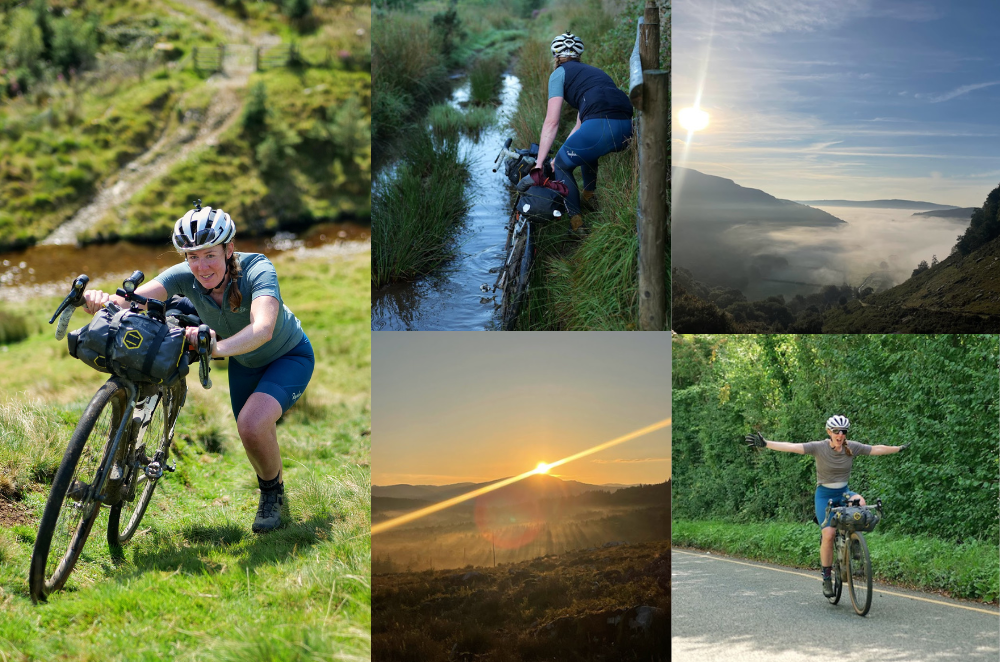
Taken from my LinkedIn post following Mountains of The Merfynion (MOTM) 2023 Ultra Cycling, especially the adventure side, is so often so little to do with cycling - there are always challenges and MOTM was no exception. At points I thought I was heading for a #scratch due to technical complications and with an ever increasingly frustrated narrative in my mind, threatening to remove any enjoyment. Much like life and running a business, ultra sport is a puzzle... with pieces that change shape. Pushing the wrong pieces in will only increase the discomfort. You might be able to pacify yourself for a while that they are the right pieces and that they fit OK, but eventually you wont be able to ignore it and it will give you another problem to solve. On that discomfort, know that it will come and you will have to sit with it. Acknowledge it, manage it as best you can and make sure you celebrate the moments you get relief, as you can be pretty sure it's going to show up again. The discomfort however is where growth lives. On the way to that growth you sometimes lose your s*** (luckily there's often only sheep to see me do this...) and it's not the end of the world. Sometimes losing your s*** needs to happen, just don't stay there. Be careful what you're practising and what that voice in your head has been telling you. What you practice is what you learn, so learn well and it will support you the next time the discomfort comes. 🍃 Take a breath 🍃Accept where you are 🍃Take another breath 🍃Revisit the plan 🍃Eyes forward, move forward. It's just a moment, the next one will be different... but you have to be brave and risk taking another step to experience it. Be grateful that you had the choice to suffer. Look up at what's around you and be rewarded with the moments of absolute awe that nature delievers you ... and that will fuel you for far longer than this particular ride will require. #istillzoomed #keepmovingforward #endurancemindset #momentum See you out there, Clare

So your 'wellbeing stuff' is a side project to your consultancy and facilitation work? Is something I often hear. I understand why, but the answer is very definitely, no. Whilst I do deliver specific wellbeing sessions across a range of core aspects, I also weave wellbeing into all my consultancy, coaching and at times..it very definitely falls out as a part of facilitation. Why? 🍃 In environments of high pressure, stress, change and particularly in the not for profit sector, I often see challenge in communications and fractures in communicating. 🍃The reaction is to apply another process, protocol or (at worst) another task list. The problem however is not in doing, the problem is in the knowing that... As a team you've stopped hearing each other. There's no bandwidth to actively listen. You’re seeing mission drift as creativity and collaboration grinds to a halt. Witnessing and dealing with challenging behaviour as frustration around not feeling heard or understood grows. Teams don’t have faith in leadership as they can see they are drawn in all directions - and modelling unhelpful behaviours. ✅ If we want to cultivate a culture of communicating well, alongside organisational growth and development, we have to be in a place where we are well, present and resilient. ❌ Wellbeing isn't a bolt on, a nice to have or another policy in a drawer. It's fundamental. It underpins how you and your people are able to feel well and function effectively, individually and together both now and into the future. Are you seeing some of these behaviors in your organisation? Have your team ground to a halt. As a leader are you feeling wiped out and not sure which way to turn? Drop me a line and let’s see what I can offer to support you: hello@auburnconsultancy.co.uk
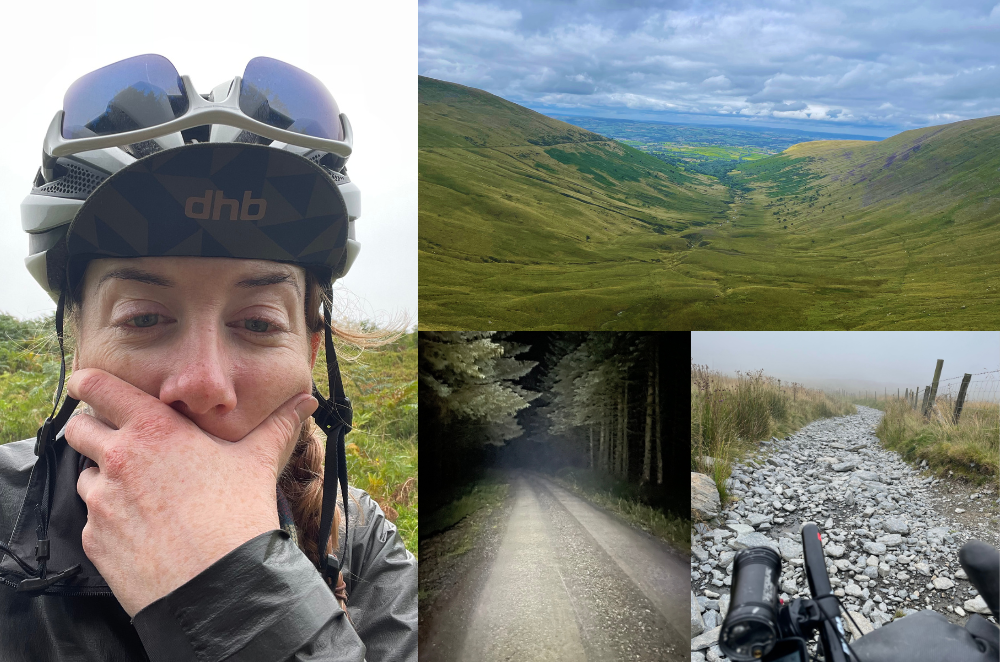
I have so much to say about GBDuro, so… to prevent me rambling on far too long in the first hit, I thought I'd pull together the most immediate thoughts that have stayed with me. Good Luck, Bad Luck, Who Knows? My friend Zelda taught me about the above Chinese saying when I first entered an Ironman in 2013. Being a complete novice, I made a mess of the training… on reflection I'd done the best with what I had at the time, but that meant I got injured. I got on the plane and went to Ironman Austria knowing that it wouldn't be a blaze of glory and planned to just do the swim and bike, but it didn't stop me having hope for another outcome and that even if I did some of it could change everything. I finished IM Austria, walking pretty much the entire run, with over an hour and a half in hand. “Because when nothing is certain, anything is possible” And so, I found myself in a similar position following GBDuro. I entered GBDuro in much the same way I entered that first IM in 2013, in blind faith and in search of the next part of my journey. The thought of it made the hairs on the back of my neck stand up and I knew it was probably a bit too soon and a little bit bigger than me. Not least it meant learning to ride a bike in an entirely new way and, because of that, a whole new bike, a whole new set up and a whole different way of training (and a lot of falling off). I’d had a very light year during the pandemic as I saw it as an opportunity to build my business and for the first time in a while I didn't really train, which was probably a break I needed, but it also meant a fitness base I no longer had. I spent weekends and evenings trying to ride on terrain that was not intuitive to me, falling off more than I have ever done since I started riding a bike and, in a situation, I wasn’t so used to either – the racing element. I tried to shrug it off, but I did find the pressure tricky, knowing that I would always be at the back of the pack for various reasons. Happily my business had really taken off because of my Covid year efforts, but it meant the balance of what I talk so much about as a coach was firmly on the tilt. I don't want this to be a story of “and then I did this and then I did that”, but I guess I do want to give some context and to say, for my own sanity, that it's really easy when we come home from these events and they haven't gone as we planned or hoped to say things like “I didn't try hard enough” and “if only I had” and “I wish that I had done this”. I really feel, just like that first Ironman, I did the very best with what I had at the time. I have hope there will another time because I want to go back and do it all again! It was an amazing adventure, it delivered in spades some of the things I'll talk about next, that I want to stay a part of my life. It truly was an incredible experience. GBDuro, and the journey towards it, has brought me these things: A whole new way to ride – And it’s awesome! I mean, don’t get me wrong it hasn’t been the cheapest year I’ve had either (that’s for another blog), but I now have a set of kit and skills that enables me to simply wander off for an adventure on my bike or otherwise in the outdoors. That feels extremely joyful, and it makes me smile every time I think about it and what it makes possible for the future for myself and my coaching! Spectacular disregard for where my limits lie - Whilst I practised hard, I think you are always contained by time or the knowledge that at some point you will go home whilst you’re training. GBDuro forced me to repeat all the stuff that was scary, uncomfortable, and new to me relentlessly for five days. I literally still cannot comprehend some of what I rode on, across, though, up and down… and I can’t wait to do more of it. I also wasn’t eaten by wolves, contrary to many of my previous beliefs… #nowolves. A recalibration of the senses – Which was something I was very much hoping for. When I entered it was as much about riding as it was my passion as a coach for being and getting others outdoors to reconnect with themselves and the world around them. I will forever be grateful from the sun rise on Tan Hill during TransEngland that moved me to tears. GBDuro brought me the ability to really see and notice, I felt so wholly connected to myself with a feeling that was so on frequency with the world around me I could almost feel it humming in my veins. I wish I could have bottled it…but the thing is, I know where to find it. The willingness to keep trying requires resilience – Training for big events is much like starting and running your own business – if it goes to plan it’s wonderful, but you learn quickly that the likelihood of that doesn’t always play out as you might like. Managing those feelings of expectation, failure and disappointment for myself, as well as what my mind sometimes wants me to wrongly perceive (e.g., that I’m doing it wrong, or that I should be feel shame about the outcome) has been the same experience during GBDuro. Living with a growing business in the pandemic has taught be to choose new routes, try them and have the ability to pause, rest and reflect when it doesn’t go right. When it hasn’t gone right, I’ve learned how to figure the problem out, re-build and find the energy to get back up, take the lessons I’ve learnt and try again. Knowing when to let it go, in life and business – I knew I needed to let go a couple of hours before I #scratched (I also knew I needed to get off the hill!) I also wanted to give myself just a little more space to be sure. When I did let go there was a huge amount of emotion, I sobbed in fact as if I was grieving for the loss of what I had worked so hard to create, but then the decision was made and everything was calm. GBDuro forced me to make a decision that was huge and, whilst it’s only a bike ride in that moment, it was nearly a year of blood, sweat and tears in the making. When I got back, the decision felt so big that I made some other decisions in life and business I’d been holding off on for a while. It shined a great big torchlight on what really needs to change if you want to get to where you REALLY want to be. I feel all the better for it. On recognising (and allowing yourself) to have incredible people in your life – I haven’t always said too much to everyone about when I am doing stuff, probably due to past experiences with people in my life, but this time I put it out there. I won’t lie, that did also make the outcome feel harder and was another aspect to deal with – having to constantly remind myself that I didn’t let anyone down, if they were disappointed it was for me and not in me. More so, somehow since I made some changes in the past few years, I have collected the most extraordinary group of friends, colleagues and just generally wonderful people – I’m still overwhelmed by it. I will be forever grateful for the emotional support they gave me before, during and after GBDuro, the lending of kit and knowledge and in the end the space they gave me whilst knowing when to ‘check-in’. I didn't know how my GBDuro was going to end. I didn’t know I was going to get injured, in fact I taken many steps to prevent injury rather than winging it as I've done in other years the irony being I injured in a completely different place. So – good luck, bad luck, who knows? Maybe the universe felt that was all I needed this time, because there will be a next time. Elizabeth Day, in her awesome podcast series, “How to fail”, laments that “learning how to fail in life actually means how to succeed better”. I’ve failed before, in life and business. Doing GBDuro I remembered what it’s like to fail, harder than ever, and with that came all the knowledge and lessons that I could have only learnt from going out there and being in it. I will take them all with me next time. The oddest thing is that this time it doesn’t feel like failure at all. It just feels like part of the journey. See you out there, Clare

